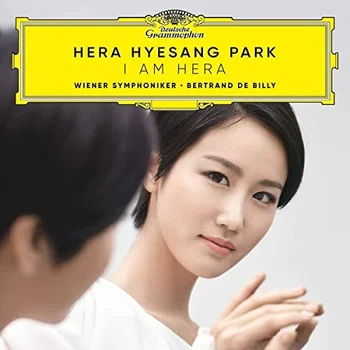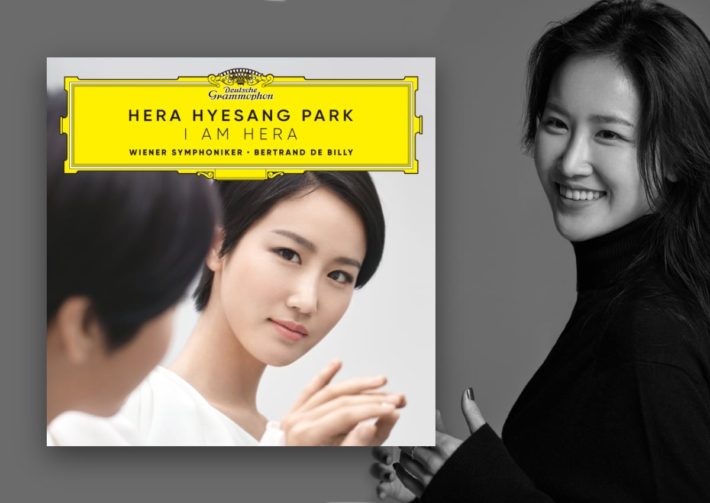In an album entitled “I am Hera”, soprano Hera Hyesang Park makes her debut for Deutsche Grammophon, having signed an exclusive contract in 2020. In a program dominated by classical arias from Mozart and Gluck, she unusually includes some contemporary and highly personal items which, depending on your view, either fit or don’t fit in with the rest of the album.

Park’s voice has a distinctly lyrical quality. Intonation is practically flawless, with the occasional top notes lacking the same consistent precision. Her tone is very pure and is consistent across her voice. In the more virtuosic areas, such as Rossini’s “Una Poco Voce Fa”, her vocal dexterity is obvious. Being exceptionally clear, she showcases her agile coloratura and chest voice, which has a particularly impressive warmth and projection. In the melismatic phrases, every note is articulated perfectly and distinctively. Park’s vibrato is light, which works well in the Gluck and Mozart arias, while in the Puccini extracts it brings a cooler, more innocent quality. This works especially well in “Quando me’n vo soletta” (track 15).
Park is particularly convincing as Pamina from Mozart’s Magic Flute, Suzanna in the Marriage of Figaro and Lauretta in Puccini’s Gianni Schicchi. She is able to emphasize the naive qualities of these characters with particular youthfulness, simplicity and persuasion. In the slower arias, such as “Se Pietà Di Me Non Senti” from Handel’s Giulio Cesare (track 4), Park makes the most of the more languorous melodies, shaping the vocal line with elegance and sophistication.
The final two tracks are like wildcard items. While there is a chronology to the items, the gap between the Puccini and Joowon Kim’s “Like the Wind That Met with Lotus” and Un-Yung La’s setting of “Psalm 23” is a step too far. Park has chosen these as pieces she has particularly personal connections with. Programmatic choices aside, in these two works the soprano comes across as the complete vocal actress, delivering with passion, animation and absolute conviction, which was sometimes missing in the preceding arias.
The playing of Wiener Symphoniker under Bertrand de Billy is very good, with some highly distinctive playing from the harp and French horns. In the baroque and classical items, the harpsichord adds to the period sound, but at times the balancing places it too forwardly, making it over-dominant. Those expecting a more ‘authentic’ orchestral hue in the Handel and Pergolesi will be severely disappointed. The strings especially have a more dated color (not always a bad thing), but Park’s ability to draw the ear to herself redirects the attention.
The acoustic is slightly overly spacious. While just about acceptable, the reverberance of Mozart-Saal Konzerthaus, Vienna, blurs the expressive silences and the lighter orchestral textures, as in Rossini’s “Una Poco Voce Fa” (track 7) and Bellini’s “Oh! Quante Volte Ti Chiedo” (track 14), in which there are excessive echo and resonance around the harp.
Despite the relatively minor quibbles, Park has an impressive instrument in her voice, and as a debut album, she is commendable for choosing a program that showcases it to the fullest. An overall enjoyable and recommended listen of an artist who certainly has an exciting career ahead of her.
“I Am Hera”
Hera Hyesang Park – Soprano
Wiener Symphoniker
Bertrand de Billy – Conductor



















